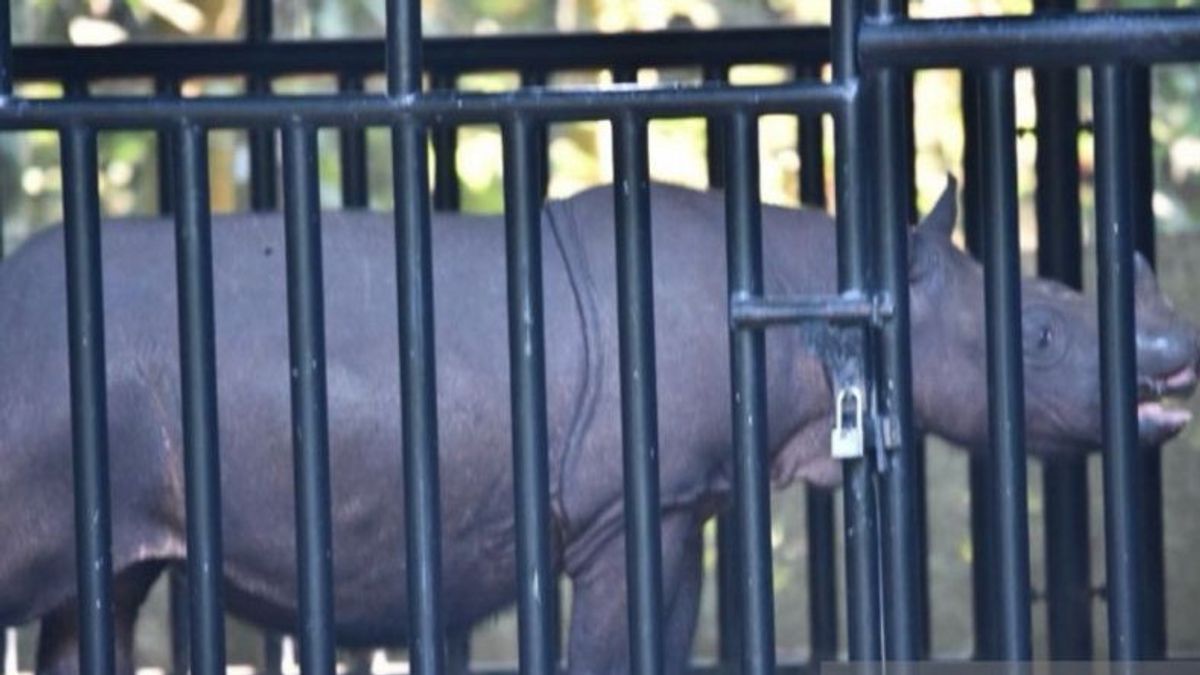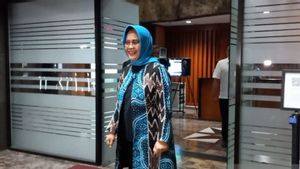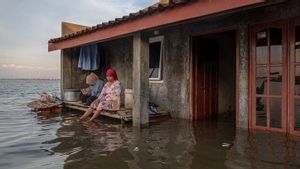SAMARINDA - The East Kalimantan Natural Resources Conservation Agency (BKSDA) together with the Ministry of Environment and Forestry (KLHK) are trying and fighting hard to keep Sumatran rhinos in Kalimantan in various ways.
One of them is the assisted reproductive technology or the Assisted Reproductive Technology (ART) or the term baby rhino tube.
The process of taking eggs (oozit) has been carried out on one of the female rhinos, named Pahu, which is located in the Sanctuary Badak Kalimantan in Kelian Kutai Barat, East Kalimantan, on Tuesday, October 31, 2023, which will then be taken to the IPB University Laboratory, in Bogor, West Java.
Director General of Natural Resources and Ecosystem Conservation, Prof Satyawan Pudyatmoko, stated that artificial breeding must be carried out to maintain the sustainability of the Sumatran rhino in Kalimantan, which only has two tails left in the world.
"The Sumatra sub-districts in Kalimantan, especially East Kalimantan, only 2 were observed and all of them were female. Therefore, we are trying our best to maintain the sustainability of the Sumatran Rhino in Kalimantan, one of which is with reproductive technology helping such as in-vitro fertilization with sperm from the Sumatran Rhino in the TN. Way Kambas, stem cells, and cloning," he said as quoted by ANTARA, Tuesday, October 31.
Meanwhile, the Head of the East Kalimantan BKSDA, M. Ari Wibawanto, said that efforts to extract the eggs of the rhino Pahu were carried out to maintain the sustainability of the Sumatran rhino in East Kalimantan.
"We are chasing time, because within 24 hours the eggs (oozit) of the rhino Pahu must be acceptable at the IPB University Laboratory from our rhino sanctuary in Kelian Kutai Barat," he explained.
The process of fertilizing in vitro eggs using the Intra Cytoplasmic Spect Injection (ICSI) technique will be fully carried out by the SKHB Badak SKHB IPB University ART Team on assignments from the Ministry of Environment and Forestry.
"In addition to taking eggs, our Badak Pahu also collects samples of biological and other genetic materials from Pahu, such as fibrobblas (skin tissue) and blood, which we will process in our ART and Biobank laboratories in Bogor, West Java", said Dr. drh. Muhammad Agil, as the head of the ART team IPB University.
VOIR éGALEMENT:
"If the process of making the rhino Pahu embryo can run well and smoothly, we will entrust the embryo to the womb of one of the female rhinos in Sumatra as the parent depositor (surrogate mother)," added Muhammad Agil.
This process was assisted by the team of IPB University and Leibniz Institute for Zoo and Wildlife Research (IZW) Germany, as well as a team of veterinarians from TN Way Kambas, ALERT Indonesia and the Badak Indonesia Foundation (YABI).
Indonesia is home to the two rarest rhinos in the world, the Javan rhinoceros (Rhinoceros sondaicus) which only remains in Ujung Kulon National Park and the Sumatran rhinoceros (Dicerorhinus sumatrensis) which are isolated in the Leuser Aceh Ecosystem Area, Way Kambas TN and one forest area in Mahakam Ulu district, East Kalimantan.
A female Kalimantan rhino (cerorhinus sumatrensis) has been successfully moved from its hryptatbitat to the Kelian Rhino Sanctuary (SBK) in the Kelian Protected Forest of PT. Kelian Lestari's Lindung Forest in 2018.
Pahu has a body length of 200 cm and a height of 107 cm, relatively smaller than the rhino in Sumatra. Based on the structure of its teeth, the age of Pahu is estimated to be 30 years.
Pahu's weight when he first entered quarantine was 320 kg, and continued to increase in line with the adequate nutrition through the intake of feed given every day. Currently, Pahu's weight has reached 366 kg, it is quite ideal when compared to its size.
"Hopefully this process can be successful and the Sumatran rhino in Kalimantan can be preserved," hoped Muhammad Agil.
The English, Chinese, Japanese, Arabic, and French versions are automatically generated by the AI. So there may still be inaccuracies in translating, please always see Indonesian as our main language. (system supported by DigitalSiber.id)

















